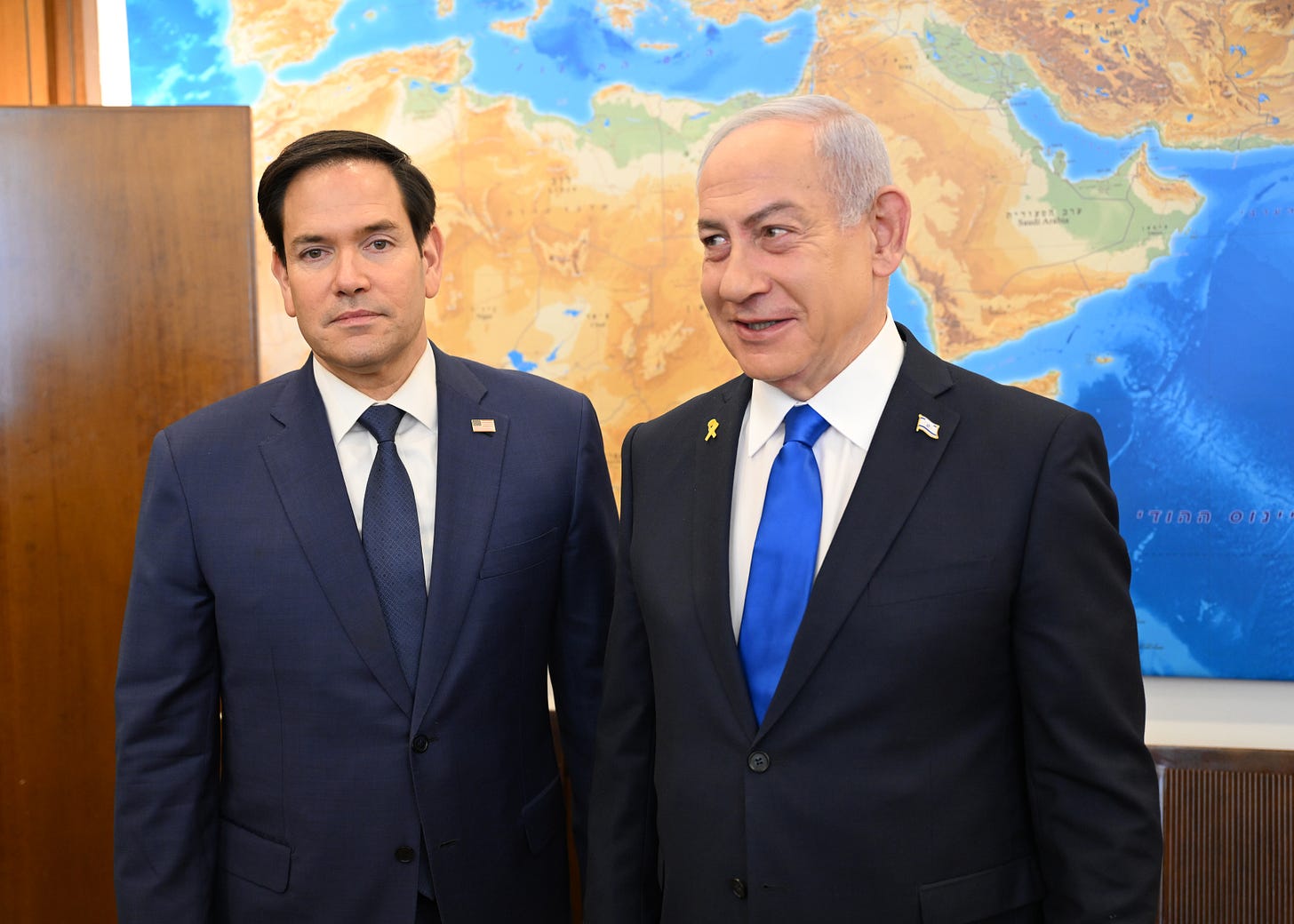Secretary of State Marco Rubio met with Israeli Prime Minister Benjamin Netanyahu in Jerusalem on Monday, September 15, as both leaders confronted mounting international pressure to end the ongoing war in Gaza and address the fallout from Israel’s recent strike on Hamas leaders in Qatar. Their high-profile discussions come at a critical juncture, with Israel preparing a ground campaign in Gaza City and broadening evacuation orders amid escalating hostilities and a stalled peace process.
Rubio’s visit, marked by unprecedented diplomatic tensions, highlights the deepening U.S.-Israel alliance but also exposes growing divisions between President Trump and Netanyahu over the war’s trajectory and controversial military actions. “Rubio's visit conveys a definitive message that America supports Israel in the face of terrorism,” Netanyahu declared during a joint press briefing. At the same time, Rubio stated that “Hamas must be eliminated as a military entity that poses a threat to peace and security in the region”.
Gaza Offensive Looms as Ceasefire Prospects Fade
Israeli forces intensified airstrikes on Gaza City over the weekend, targeting several high-rise buildings allegedly used by Hamas, in advance of a widely anticipated ground invasion. The Israeli Defense Forces issued mass evacuation orders, prompting over 300,000 Palestinians to flee the city, according to the IDF.
Rubio met with key Israeli officials, including Foreign Minister Gideon Sa'ar and President Isaac Herzog, focusing on the military’s plans and the ramifications for ongoing hostage negotiations. With the Gaza truce efforts stalling since a spring ceasefire and partial hostage release, prospects for a diplomatic resolution remain bleak.
Diplomatic Crisis After Qatar Strike
Tensions flared last week when Israeli airstrikes killed Hamas leaders in Doha, Qatar, a major U.S. ally and mediator in the Gaza crisis. Trump publicly rebuked Israel for the attack, warning it could “complicate prospects for a peace agreement” and strain relations with Gulf partners vital to U.S. regional strategy.
Qatar’s prime minister condemned the operation as “state terrorism,” calling it a violation of sovereignty and a threat to ongoing negotiations. Secretary Rubio sought to address the fallout, underscoring U.S. support for Israel but admitting, “Our focus is on what comes next,” as diplomatic channels appeared increasingly fragile.
Disputes Over Palestinian Statehood and the Abraham Accords
Netanyahu remained steadfast in his opposition to a Palestinian state, declaring at a ceremony for new West Bank settlements that “there will be no Palestinian state!” and warning that unilateral recognition by European powers or Canada could prompt Israel to annex territory.
Rubio echoed Israeli criticisms of proposed statehood recognition, suggesting it “emboldens Hamas” and is “counterproductive to negotiations.” Analysts have cautioned that Netanyahu’s policies could imperil the Abraham Accords—agreements forged during the Trump era that normalized relations between Israel and several Arab countries. “A future step is a future step, you don’t have to reveal it beforehand,” Netanyahu remarked when asked about possible responses to international moves.
Humanitarian Crisis Intensifies
The humanitarian impact of the Gaza conflict continues to grow. Over 48,000 people have been killed in the Strip since October 2023, with approximately 70% of structures either damaged or destroyed, according to Gaza health officials. Food shortages, medical supply scarcities, and mass displacement have compounded the crisis, with hundreds of thousands now living in Israeli-declared “humanitarian zones”.
International organizations have condemned the ongoing hostilities. The United Nations expressed grave concerns over the legality and consequences of forced displacement, while rights groups have called for restraint and urgent humanitarian intervention.
Global and Domestic Reactions
The diplomatic fallout from the Qatar strike and the Gaza assault has been profound. Saudi Arabia, Egypt, the UAE, and the European Union have denounced Israel’s actions, with some nations reconsidering their ties and pushing for recognition of Palestinian statehood at the U.N. General Assembly. “Any attempt to displace Palestinians forcibly could destabilize an already volatile region,” warned John Mearsheimer, a leading U.S. analyst.
Domestic criticism of the Trump administration’s backing for Israel has mounted. While Trump counts the Abraham Accords as a major legacy, his administration’s ability to broker further normalization agreements—mainly with Saudi Arabia—is increasingly in doubt as the situation deteriorates.



